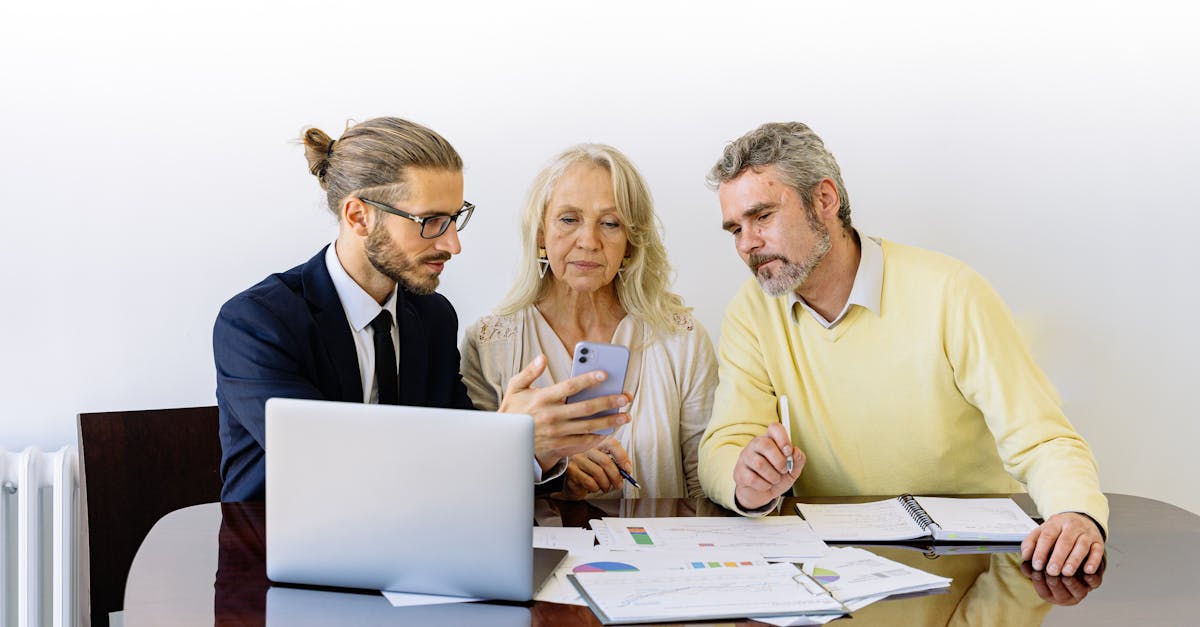
Pro Bono Services from Private Attorneys
Many private attorneys offer pro bono services to individuals who cannot afford legal representation. This commitment to social responsibility allows these professionals to assist clients in various legal matters without charging fees. Often, lawyers participating in pro bono programs have expertise in specific areas of law. They provide valuable support to those in need and help bridge the gap in legal assistance.
Clients seeking pro bono services can typically find a directory of participating attorneys through local bar associations or legal aid organizations. These resources can guide individuals to lawyers willing to provide free consultations and advice on legal rights. Many attorneys are eager to help their communities and to ensure that everyone has access to justice, reinforcing the importance of legal advocacy for all.
Finding Volunteer Lawyers in Your Area
Locating volunteer lawyers in your area can be straightforward with the right resources. Various legal aid organizations maintain a list of attorneys willing to offer their services for free or at a reduced cost. These organizations often partner with local law schools, where law students assist in pro bono work under the guidance of experienced attorneys. Community centers and public libraries may also have information on nearby legal clinics that provide access to volunteer lawyers.
Many volunteer lawyers focus on specific legal issues, allowing for targeted help when needed. When you reach out, be prepared to explain your situation briefly. These professionals can offer vital advice on legal rights and help you navigate your options. Utilizing local bar associations can also be beneficial, as they often have directories or referral services to connect individuals with pro bono attorneys in their community.
Government Programs and Hotlines
In North Carolina, various government programs and hotlines offer free legal advice to individuals in need. These services provide access to information regarding specific legal issues and can help navigate complex legal processes. Individuals can reach out to state-sponsored hotlines for immediate assistance, where trained professionals often provide insights into personal rights and available options.
Additionally, state resources enable residents to learn about their legal rights through workshops and informational sessions. These programs may address issues such as housing, family law, and public benefits, ensuring that people understand their entitlements and responsibilities. Engaging with these services can empower individuals by equipping them with essential knowledge for advocating their rights effectively.
Accessing Legal Help Through State Services
North Carolina offers various state-sponsored programs to help residents access free legal advice. These resources typically include hotlines and online platforms where individuals can seek assistance regarding specific legal issues. By reaching out to these state services, individuals can gain valuable information tailored to their circumstances. Support often encompasses a wide range of matters, such as family law, housing disputes, and consumer protection.
Additionally, local legal aid organizations frequently collaborate with state services to enhance access to legal help. These organizations can provide in-depth consultations and assistance in navigating the legal system. They focus on allowing individuals to understand their options, including the advice on legal rights. Overall, these resources aim to empower residents to advocate for themselves within the legal framework.
Communitybased Legal Services
Community-based legal services in North Carolina offer essential support to individuals seeking assistance with legal issues. Many local organizations focus on providing resources tailored to underrepresented communities. These initiatives often include workshops, informational sessions, and one-on-one consultations. Such services aim not only to address immediate legal needs but also to empower individuals by educating them about their rights.
In addition to direct legal assistance, these organizations frequently provide advice on legal rights and responsibilities. They help clients navigate complex legal systems and understand their options. Many community-based programs also work in collaboration with local law schools, facilitating access to seasoned legal professionals who volunteer their time. This partnership enhances the overall availability of resources for those in need, ensuring that more people can access vital legal support.
Local Initiatives That Offer Support
In North Carolina, various community-based organizations play a pivotal role in offering free legal assistance. These local initiatives often focus on specific groups, such as low-income individuals, veterans, and domestic violence survivors. They provide vital resources that can help people navigate their legal challenges without the burden of expensive fees. Many of these organizations host clinics or workshops that serve to educate the public about their rights and available legal resources.
People seeking support can access advice on legal rights through these community services. Volunteers and trained staff members are available to offer guidance, answer questions, and help individuals understand their legal options. By engaging with these local initiatives, residents of North Carolina can gain the knowledge and support they need to address their legal issues effectively.
FAQS
What is pro bono legal service?
Pro bono legal service refers to free legal assistance provided by attorneys to individuals who cannot afford to pay for legal representation.
How can I find volunteer lawyers in my area?
You can find volunteer lawyers by contacting local legal aid organizations, checking with your local bar association, or visiting websites that specialize in connecting individuals with pro bono attorneys.
Are there any government programs that offer free legal advice in North Carolina?
Yes, North Carolina has various government programs and hotlines that provide free legal advice, such as the North Carolina Legal Aid and the NC Department of Justice.
How can I access legal help through state services?
You can access legal help through state services by calling legal aid hotlines, visiting their websites, or inquiring at local courthouses for available resources.
What community-based legal services are available in North Carolina?
Community-based legal services in North Carolina include local legal aid clinics, nonprofit organizations, and initiatives that offer support for specific legal issues or populations, such as housing, immigration, or family law.
